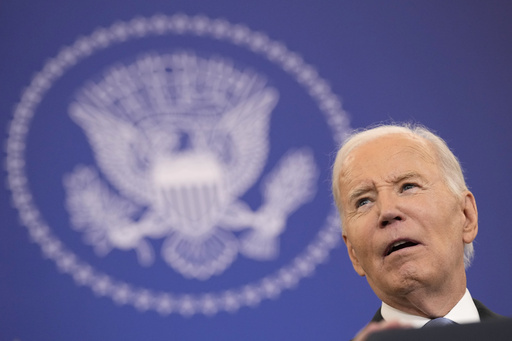President Joe Biden has communicated to Congress his intention to remove Cuba from the list of nations designated as state sponsors of terrorism, according to an announcement from the White House. This decision is part of an agreement supported by the Catholic Church aimed at facilitating the release of political prisoners in Cuba.
Officials from the U.S. administration shared confidential details regarding the announcement, indicating that “many dozens” of political prisoners, alongside others unjustly detained, would be freed before the Biden administration concludes its term at noon on January 20. Alongside this change, the U.S. plans to alleviate some economic restrictions imposed on Cuba and to revoke a 2017 directive from the Trump administration which had hardened U.S. relations with the island nation.
In a statement, White House press secretary Karine Jean-Pierre noted that these actions are intended to support ongoing dialogue between the Cuban government and the Catholic Church. She also highlighted that Biden is responding to the advice of numerous world leaders—particularly from Latin America—who have urged him towards measures that promote human rights for the Cuban people.
On Tuesday, Cuba’s foreign ministry announced that it had informed Pope Francis of its plan to gradually release 553 individuals convicted of various offenses. The government stated that the release would proceed as authorities assess the necessary legal and humanitarian processes.
Although the Cuban foreign ministry did not tie the release of prisoners to the U.S. lifting its terrorism designation, it expressed that the decision aligns with the spirit of the Ordinary Jubilee year proclaimed by Pope Francis for 2025. In its statement, the Cuban authorities criticized U.S. sanctions as an act of “economic warfare” and acknowledged the possibility of Biden’s decision being overturned by a future administration.
Under Biden’s leadership, expectations are that this designation may be revoked soon after Trump, who has been re-elected, assumes office. Trump’s appointed Secretary of State Marco Rubio, who has a history of advocating for strict sanctions against Cuba, is anticipated to reinforce that policy.
Rubio is scheduled for a confirmation hearing before the Senate Foreign Relations Committee and is expected to discuss his Cuban heritage during his testimony.
In addition, Trump has appointed Mauricio Claver-Carone, a former National Security Council official and advocate for sanctions, to a role focused on Latin America. U.S. officials revealed that the Trump transition team was briefed on Biden’s announcement before it made headlines.
Mike Waltz, Trump’s choice for national security adviser, hinted at a quick return to previous policies but conveyed that any progress made concerning prisoner releases should be recognized. He emphasized that while they may disagree with current developments, the situation with the released individuals must be managed for the time being.
On January 11, 2021, in the closing days of Trump’s one-term presidency, the designation of Cuba as a terror-supporting nation was reinstated. This move was justified by citing Cuba’s backing of Venezuela’s leader Nicolas Maduro and its refusal to extradite Colombian guerrillas, in addition to harboring accused Americans.
The reinstatement was part of a series of significant foreign policy actions taken by Trump in his last days in office. Following this, in mid-2021, the Biden administration imposed new sanctions on Cuban officials and police after a wave of protests erupted over various issues, marking the first such uprisings since the 1990s.
Human rights organizations, including the U.S. Conference of Catholic Bishops, have advocated for the lifting of such designations to alleviate the hardships faced by the Cuban populace amidst the nation’s economic isolation.
In responding to Biden’s announcement, Cuba’s government expressed gratitude but described the decision as limited in scope. Their foreign ministry stated that this move, albeit minimal, is a step in the right direction and aligns with the persistent demands of the Cuban people and government.
Biden’s administration has assessed that there is currently no credible evidence suggesting Cuba supports international terrorism, and Congress, along with the new Trump administration, may review and potentially overturn Biden’s decision. The Cuban authorities have expressed awareness of this possibility but remain open to fostering respectful relations based on dialogue and non-interference despite existing differences.
While Rubio had not immediately commented, Texas Senator Ted Cruz criticized Biden’s decision, labeling it as unacceptable and asserting that the threat from the Cuban regime persists. He vowed to collaborate with Trump and fellow lawmakers to swiftly reverse the impact of this decision.
Florida Representative Carlos Gimenez also condemned Biden’s action, forecasting that the Trump administration would quickly retract it. He expressed strong sentiments over the political shift anticipated with Trump and Rubio taking office.
In a national security memo, Biden confirmed that Cuba has not engaged in supporting terrorism over the past six months and received assurances from the Cuban government that future terrorist support would not occur. This move follows the administration’s removal of Cuba from a list of nations deemed uncooperative against violent extremism earlier in May.



